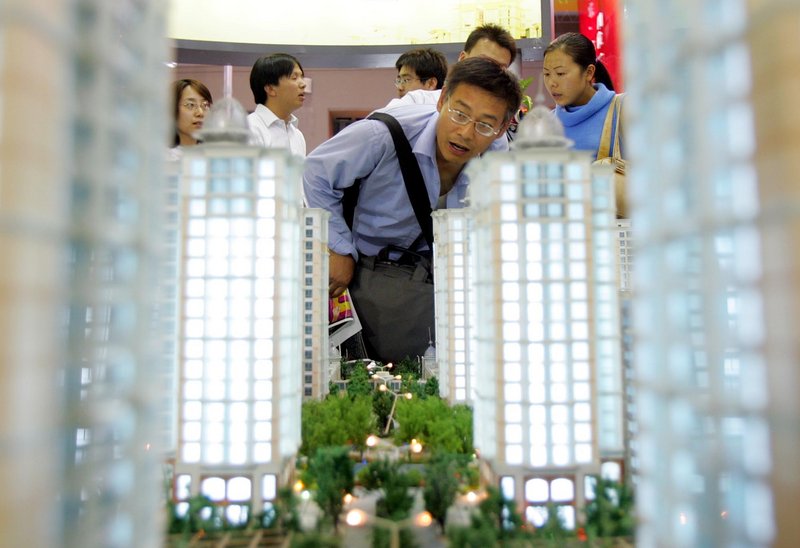BEIJING – Falling home values. Debt-strapped borrowers. Real estate woes dogging the economy. It’s old news in the United States, but now the air has started to leak from another great housing bubble — in China.
Home prices nationwide declined in November for the third straight month, according to an index of values in 100 major cities compiled by the China Index Academy, an independent real estate firm. Average prices in the Shanghai area are down about 40 percent from their peak in mid-2009, to about $176,000 for a 1,000-square-foot home.
Sales have plummeted. In Beijing, nearly two years’ worth of inventory is clogging the market, and more than 1,000 real estate agencies have closed this year. Developers who once pre-sold housing projects within hours are growing desperate. A real estate company in the city of Wenzhou is offering to throw in a new BMW with a home purchase.
The swift turnaround has stunned buyers such as Shanghai resident Mark Li, who thought prices had nowhere to go but up. The software engineer closed on a $250,000, three-bedroom apartment in August, only to watch weeks later as the developer slashed prices 25 percent on identical units to attract buyers.
Outraged, Li and hundreds of others who paid full price trashed the sales office, scuffled with employees and protested for three days before police broke up the demonstration. Walking away now would mean losing the $75,000 down payment that he borrowed from his working-class parents.
“I still haven’t told them,” Li, 29, said of his home’s falling value. “It will just make them worry, and it’s already too late.”
It’s all eerily similar to the early stages of the U.S. housing crash. The big difference is that the Chinese government intentionally slammed on the brakes.
In the past year it has tightened lending and prohibited the purchase of more than one home in several cities, in a bid to discourage speculators and bring down prices. Chinese authorities say they’re trying to tame inflation and defuse public anger over housing costs, the fallout from the government’s efforts to stimulate the economy with easy credit during the global financial crisis. They have pledged to keep home-buying limits in place for the foreseeable future.
But concern is growing about Beijing’s ability to engineer a soft landing.
The property sector is a huge employer and now accounts for about one-fifth of China’s economic output. Local governments are heavily dependent on land sales to fund public services and to pay off municipal debt. Banks issued record numbers of home mortgages and construction loans, whose collateral is real estate that’s now falling in value.
A real estate crash would reverberate well beyond China. The building binge helped fuel a global boom in raw materials, including Brazilian iron ore and Chilean copper. And it would hobble an economy that the rest of the world was counting on for new consumers and investment opportunities.
The Paris-based Organization for Economic Co-operation and Development warned last month that a collapse of some major Chinese real estate developers would put the nation’s banks at risk, a threat that’s “overshadowing” the economic outlook of the world’s second-largest economy.
Some analysts, however, contend those fears are overblown.
Hundreds of millions of rural Chinese are projected to move into cities in the coming decades, bolstering demand for new housing.
And Chinese aren’t nearly as leveraged as Americans. First-time buyers are required by law to have down payments equal to 30 percent of a home’s purchase price, and many put down more. Experts say the government could also lift its buying restrictions.
“I don’t think China is in danger of a U.S.-style housing crash,” said Alistair Thornton, a Beijing-based analyst for IHS Global Insight. “They still retain levers of control, should the property market slide faster than expected.”
Copy the Story Link
Send questions/comments to the editors.



Success. Please wait for the page to reload. If the page does not reload within 5 seconds, please refresh the page.
Enter your email and password to access comments.
Hi, to comment on stories you must . This profile is in addition to your subscription and website login.
Already have a commenting profile? .
Invalid username/password.
Please check your email to confirm and complete your registration.
Only subscribers are eligible to post comments. Please subscribe or login first for digital access. Here’s why.
Use the form below to reset your password. When you've submitted your account email, we will send an email with a reset code.